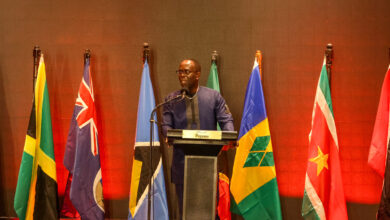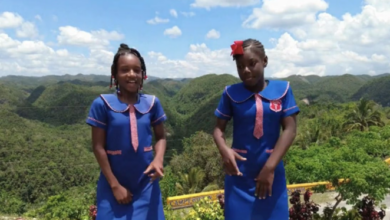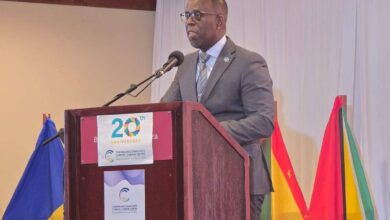The CARICOM Secretariat joins women and men globally to commemorate 16 Days of Activism Against Gender-Based Violence, observed from 25 November which is designated as the UN International Day for the Elimination of Violence against Women, to 10 December, the UN Human Rights Day. This annual campaign spans these 16 Days in order to highlight the link between violence against women and human rights.
We recognize that gender-based violence continues to be a serious problem across the Caribbean that impacts on all aspects of our society. Although violence against men has received increasing global attention, the majority of survivors are women. Social roles, ideals of masculinity and femininity and power relationships render women more vulnerable to violence.
All forms of violence, physical, sexual or psychological have serious ramifications for the health of the victims, family members and the community. The social costs are many, as both victims and perpetrators of violence often face stigma and isolation, and families and communities become stressed and often fractured. There are also significant economic costs affecting productivity, earnings, and an added burden to health, social and judicial systems. Research has demonstrated that gender-based violence severely limits women's contributions to social and economic development and is a major cause of ill health among women and girls. In addition, exposure to violence in childhood raises the risk of other forms of violence later in life that has long-term and intergenerational effects.
Since 1992, there have been developments in CARICOM’s legal systems, including the enactment of model legislation to address domestic violence, offering greater protection to women from abuse through the power of Magistrates courts to grant protection orders. Another major stride is the full criminalization of rape within marriage in several countries in the Region. Police have also been given greater responsibility to prevent domestic violence as well as to protect persons who are suspected to be victims of domestic violence. In some countries, police have the power to arrest without warrant and can apply for protection orders on behalf of children or abused spouses or partners.
The CARICOM Advocate for Gender Justice, Dr. Rosina Wiltshire, was appointed in 2010 and has been actively engaged in research and education to highlight gender-based violence in the Region. Last year, her office released a report titled Youth Masculinities and Violence in the Caribbean, which revealed the link between socially constructed concepts of masculinity, violence against women and general violence in the Region. The data give insight into the factors that shape the attitudes, perspectives and behavior of young men, violence and the high incidence of HIV/AIDS in the Region. The report notes that in addition to being perpetrators of violence, many young men lose their lives to violence and constitute the majority of the prison population.
Despite the achievements in giving visibility to gender-based violence and in defining State obligations, we are still inundated almost daily by reports of killings and violence in our region. These are often domestic situations where the victims are women and children and the perpetrator a ‘loved one’. Although such incidents may occur in the home, they are not a ‘private matter’ but rather a ‘public matter’; often criminal and infringing on our collective security.
I commend people in the Region who work with survivors and perpetrators of violence, particularly those first responders, the police, crisis shelter workers, social workers, health care workers, and lawyers. There are many challenges to your work including the risk of harm and even death as you intervene in physically and emotionally volatile situations. Efforts to offer timely and effective responses and services to victims must be increased and we must apply due diligence in preventing, investigating and punishing all forms of gender-based violence. We must also increase efforts to work with the perpetrators and develop and implement programmes to modify social and cultural practices and patterns of violent behavior. Key to effectiveness is an early and coordinated intervention to break the cycle of violence.
Our education system has a critical role to play as teachers, parents, children and youth can create school settings that are peaceful, free from corporal punishment, harassment and humiliation. Teaching methods must model equitable gender relations and positive communication and conflict resolution. Health and family life education must imbue values of respect and inclusion and empower students to know their rights, responsibilities and limits in relating to each other as girls and boys, young men and women. Youth can be part of the solution by engaging in peer counseling programs and saying ‘no’ to violence. They can be leaders in reducing risk factors that contribute to violence such as alcohol and substance abuse.
Ending violence in our communities requires that we all become advocates. Men have a special responsibility to carry the message of justice and respect for women and to redefine masculinity away from the traditional and harmful practices of aggression and control. It is encouraging to see a growing movement of men across the Region working for change.
Let us as a Region continue our vigilance and work together as men and women, government and non-governmental organizations and national and international agencies, to end gender-based violence and honour freedom from violence as a human right. Let us all take action and make a contribution to the 16 Days event theme – Peace in the Home to Peace in the World!
Accredited Third StatesCubaGender InequityPress ReleasesSustainable development





